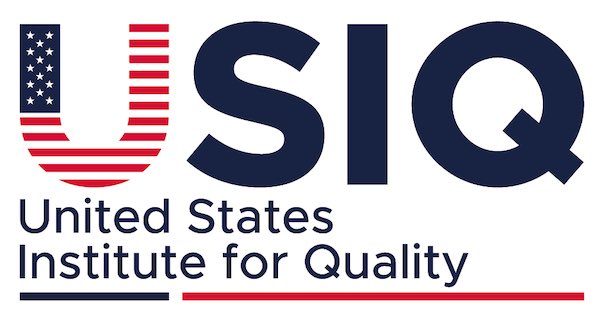|
Getting your Trinity Audio player ready...
|
This article presents the so-called quality criteria of market research (objectivity, validity, and reliability). Learn more about the quality criteria.
1. Objectivity in Market Research
Objectivity is a key quality criterion in market research and plays a decisive role in the evaluation of employer / Quality seals. Objectivity refers to the extent to which the results of an assessment procedure are independent of the influences of the persons carrying out the assessment (Bortz & Döring, 2016, p. 35). When awarding employer seals, this means the processes and methods for evaluating and awarding an employer must be designed so that they cannot be influenced by the evaluators’ individual opinions or subjective assessments.
An objective employer seal is characterized by standardized evaluation procedures that include clear and transparent criteria for assessing employer attractiveness. These criteria must be applied uniformly to all assessed companies to ensure the results are comparable. For example, aspects such as employee satisfaction, corporate culture, further training opportunities, and career opportunities should be assessed according to defined standards to avoid subjective distortions (Krosnick, Judd & Wittenbrink, 2005, p. 45).
Ensuring objectivity also requires that the persons carrying out the assessments act neutrally and independently. This can be achieved through training and clear procedural guidelines that ensure all assessors interpret and apply criteria consistently. Assessment procedures should also be regularly reviewed and adjusted as necessary to maintain continuous objectivity (Hussy, Schreier & Echterhoff, 2013, p. 89).
2. Validity in Market Research
Validity is a decisive criterion in the evaluation of employer seals, as it determines the validity and informative value of a measurement method. Validity describes whether a procedure measures what it claims to measure (Bortz & Döring, 2016, p. 153). In the context of employer seals, this means the assessment procedures and criteria must capture and reflect the attractiveness and quality of an employer. Different types of validity are relevant in the context of employer seals. Content validity ensures the assessment tools cover all relevant aspects of employer attractiveness. This includes criteria such as working conditions, salary structures, promotion opportunities, work-life balance, and corporate culture (Schnell, Hill & Esser, 2018, p. 232). These criteria should be defined comprehensively and precisely and reviewed by experts to achieve a high level of content validity.
Another important form is criterion validity, which examines the relationship between the results of an employer seal and external criteria that are considered indicators of employer attractiveness. For example, one could examine whether companies that have received a certain employer seal have higher employee satisfaction and lower turnover rates (Hussy, Schreier & Echterhoff, 2013, p. 195). A high criterion validity would indicate that the seal makes reliable and relevant statements about an employer’s quality.
3. Reliability in Market Research
Reliability is a fundamental quality criterion in market research and refers to the reliability and consistency of a measurement method. A measurement instrument is considered reliable if it delivers consistent results in repeated measurements under the same conditions (Bortz & Döring, 2016, p. 133). In the context of employer seals, this means the assessment of an employer as attractive and of high quality remains stable regardless of time and who is doing the rating.
A high degree of reliability is crucial for strengthening trust in employer seals. Only if the ratings can be reproduced independently of external influences, such as random fluctuations or subjective assessments, can they serve as reliable guides for applicants. The most important methods for ensuring reliability include test-retest reliability, interrater reliability, and internal consistency (Schnell, Hill & Esser, 2018, p. 247).
Test-retest reliability is checked by applying the same measurement instrument at different points in time under the same conditions and comparing the results. In the case of employer seals, this could mean that a company must be assessed at different times by the same or different assessors to test the stability of the results (Hussy, Schreier & Echterhoff, 2013, p. 215).
Sources:
- BORTZ, J. / DÖRING, N. 2016. Forschungsmethoden und Evaluation für Human- und Sozialwissenschaftler. Wiesbaden: Springer Verlag.
- HUSSY, W. / SCHREIER, M. / ECHTERHOFF, G. 2013. Forschungsmethoden in Psychologie und Sozialwissenschaften für Bachelor. Springer-Verlag.
- KROSNICK, J. A. / JUDD, C. M. / WITTENBRINK, B. 2005. The handbook of attitude Mahwah, NJ: Erlbaum, 2015.
- SCHNELL, R. / HILL, P. B. / ESSER, E. 2018. Methoden der empirischen Sozialforschung. Berlin: De Gruyter Oldenbourg.
Related Articles
Recruitment marketing aims to market your organization in order to target potential employees. Rather than waiting for individuals to approach [...]
The current fast-paced job market demands essential adaptability from both workforce members and organizations. The technological changes in industries and [...]
A successful social media marketing strategy for B2B success depends on trust development while sharing valuable content that targets decision-making [...]
Every employer understands the importance of retaining their employees because this is one way through which their business can grow [...]





